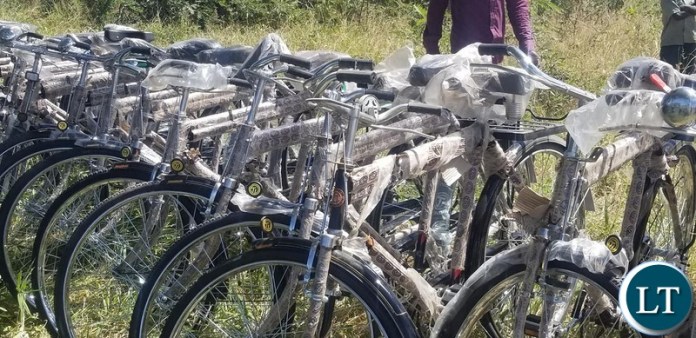Minister of Health Jonas Chanda has advised the general public to continue with the laid down COVID-19 guidelines in there arises a third strain of the pandemic which he said is more lethal.
Dr Jonas Chanda says few countries in Africa which are already experiencing a third wave of COVID-19 which he said is more lethal as it has so far recorded larger numbers of severity and deaths.
In a statement made available to ZANIS by Ministry of Health Public Relation officer Amos Zulu in Lusaka yesterday, Dr Chanda says according to the international reports, which indicates that the new COVID-19 strain has affected 219 countries and territories globally .
.
“The new strain of the coronavirus in brazil is causing severe illness and deaths in young people.
“ However ,on a positive note , we have observed a controlled outbreak among controlled outbreak among countries with very high vaccination coverage such as United Kingdom , Israel , COVID-19 among others,” Dr Chanda noted.
Taking note of the reduced COVID-19 cases in the country which has excited a cross section of society, the minister has however advised the general public to be on guard saying the reduced cases of the global pandemic does not indicate the end of the global pandemic.
“ Until there is no COVID-19 anywhere in the world , we remain at risk of continued disease transmission as the virus evolves and even increase, “ he says in the statement.
He further noted that just like the second wave of the pandemic did not spare the country, it is likely that the third wave is still possible in Zambia and other countries in the region, especially as we enter the upcoming cold season.
“It is for this reason government under His Excellency President Edgar Lungu re-emphasises the need for all eligible persons above the age of 18 years to get vaccinated voluntarily, and everyone to continue adhering to prescribed public health measures coined in the five golden rules Vaccinations against COVID-19 will protect those vaccinated, while un-vaccinated people are not protected,” he stated.
He further applaud the many individuals, communities, places of worship, business houses, the hospitality industries and institutions including schools and work places, who are recording adequate compliance levels to public health measures.
Dr Chanda noted that it is imperative that we uphold to the public health guidance given if we are to avert the third wave and indeed control the COVID-19 pandemic outbreak until its elimination.
Meanwhile, in the last 24hours the country recorded among 47 Districts countrywide, Two Hundred and Eighteen (218) ‘new’ cases out of 7,990 tests conducted representing a positivity of 2.7%.
Giving his daily up-date on COVID-19 in the same statement, Dr Chanda said that new cases and positivity by province indicates that Central had 26 cases, Copperbelt 10, Eastern 85 , Luapula 8, Lusaka 27, Muchinga 7, Northern 17, North-Western 17, Southern 12, and Western nine.
The cumulative number of confirmed cases recorded to date stands at 90,750.
The Minister noted with sadness that three patients died of COVID-19 with Lusaka , Kabwe and Lundazi recording a death each during the last 24 hours.
“ This brings the cumulative number of COVID-19 related deaths recorded to date now stands at 1,233, classified as 690 COVID deaths and 543 COVID-19 associated deaths, “ he said.
131 discharges from both the COVID-19 isolation facilities and home management where recorded, bringing the cumulative number of recoveries to 88,403 ,97%.
There are currently 1,103 active cases, of whom 1,048 (95%) are under community management in the country and 55, 5% are admitted to our COVID-19 isolation facilities, among those admitted, 38 (are on Oxygen therapy and 4 are in critical condition.
On the COVID-19 vaccination program, Dr Chanda said the exercise is slowly gaining momentum saying another 104 people were vaccinated yesterday bring the cumulative total to 265.
“We remain hopeful that when we launch the campaign in the 248 selected facilities across the Districts in the country early next week, we will have more people vaccinated. All eligible candidates are encouraged to get vaccinated,” he said.
He noted that over 80% of the eligible adult population to be vaccinated if we are to build “herd immunity” and protect ourselves from COVID-19 pandemic.



























